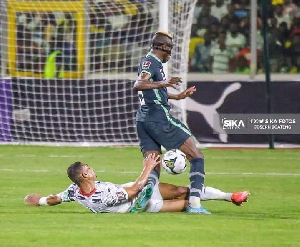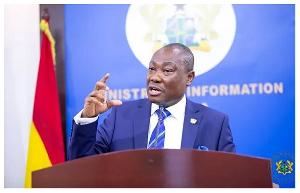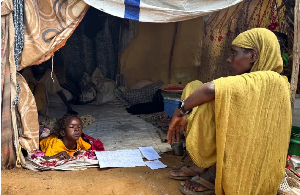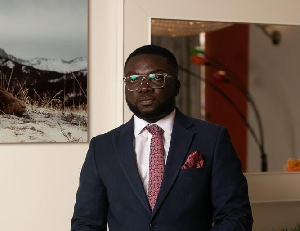Accra, Jan. 10, GNA - An ECOWAS Education Fund to finance the provision of infrastructure and other programmes to ensure quality education in the West African sub-region is to be established. The Fund would be modelled on the Peace Fund, with proceeds from the newly approved Community Levy and other resources. These were contained in a communiqu=E9 issued at the end of the Second Meeting of ECOWAS Ministers of Education and Experts, in Accra. Vice President Aliu Mahama, closed the two-day Meeting, which was on the theme: "Education and Sub-Regional Integration: Our Commitment and Perspectives."
Thirteen Ministers of education of the 15-member body attended the event preceded by technical session of about 30 experts. The Ministers in their communiqu=E9, also said they would mandate the Executive Secretariats of ECOWAS, the Decade of Education in Africa and UNESCO to proceed with the mobilisation of resources to implement their priority programmes.
These included a Sub-regional programme on Distance Education of teachers based on new technologies; Sub-regional support programme on HIV/AIDS Preventive Education and Sub-regional support for Girls' Education.
Other areas to be considered were the support for teaching of Science as well as the finalisation of support programmes for the creation of a regional resource centre for distance education and technologies of Information and Communication for West Africa. Additionally, the Ministers pledged to mandate the ECOWAS Secretariat to develop a five-year Strategic Action plan for Education, taking into account the multi-sectoral linkages of education development, including poverty eradication.
The ECOWAS Education Ministers recommended that the Sub-region's Education framework should be defined to include a nine-year rather than a six-year programme.
Vice President Mahama Commended the Ministers and their technical advisors for focusing on areas that were critical to human resource development.
He urged them to develop practical strategies to speed up the achievement of quality education for all at both national and sub-regional levels.
Vice President Mahama told them: "Nowadays, development cannot ignore the central role of Science and Technology and vocational training.
"Joining efforts, extending partnership, and addressing the daily needs of our people are crucial options for ensuring the impact on quality life improvement, in particular at the community level."
Vice President Mahama advised the Ministers and their technical advisors to make use the Sub-Regional Distance Education Programme on Teacher Training, sponsored by UNESCO as a guide for similar programmes. The International Centre for Girls and Women's Education in Africa at Ouagadougou and the Forum of African Women Educationalists and other civil societies, he said, had useful knowledge and advice for closing the gender gap in education.
Vice President Mahama commended UNESCO and ECOWAS for sponsoring the meeting and urged them to continue supporting efforts aimed at developing Africa's human resources.
In an interview with the GNA, Ghana's Minister of Education, Youth and Sports, Mr Kwadwo Baah-Wiredu, who is the new Chairman of the Group of Ministers, said he would prioritise the establishment of the Fund. He explained that several countries had completed the necessary groundwork for the implementation of the Educational for All programme, but were constrained by the lack of resources.
The mobilisation of resources at the Sub-regional level, he said, would also send strong signals to development partners that West Africa was determined to improve its human resource situation.
Mr Baah-Wiredu said the Fund would be used to promote education at all levels, with the provision of buildings, furniture, teacher training faculties and vocational and technical education materials.
Apart from Cape Verde, primary education within the sub-region ranges between less than one out of two children in countries like Burkina Faso, Liberia and others to three quarters of children in Ghana, Togo and Benin.
HIV/AIDS Preventive Education is said to be very vital to the development of the Sub-region, because five per cent, representing about 6.5 million of the active population (15 - 49 years olds) are infected with HIV/AIDS, Countries worse hit by the HIV/AIDS scourge were Cote d'Ivoire, 9.7 per cent, Sierra Leone, seven per cent, Burkina Faso, 6.5 per cent, Togo, six per cent and Nigeria, 5.8 per cent, adding that "this is unacceptable."
General News of Saturday, 10 January 2004
Source: GNA






![Emmanuel Tetteh George and his wife Ruth Ewoenam [Image Credit: Manuel Photography] Emmanuel Tetteh George and his wife Ruth Ewoenam [Image Credit: Manuel Photography]](https://cdn.ghanaweb.com/imagelib/pics/943/94388192.295.jpg)





